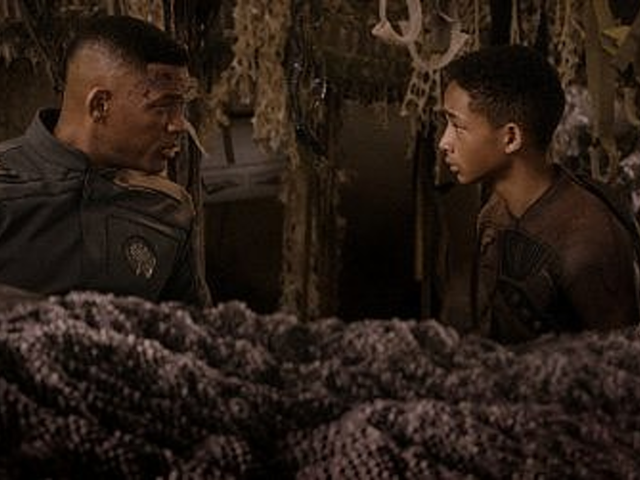Myths go back to the dawn of man. The first time a human being asked “Why am I here?” was the genesis of storytelling. The United States, however, is a young nation, and the Midwest, as a region, is an even younger concept. While the U.S. might lack mythological figures like Hercules and Thor, it does have “tall tales” such as Johnny Appleseed, Paul Bunyan and John Henry. Comedian, storyteller and musician Paul Strickland from Indianapolis does something clever with his one-man show Ain’t True and Uncle False: He applies the tropes and archetypes of the ancient oral storyteller to mythologize trailer parks. Although his 60-minute show (at 1334 Main Street) ends with a bit of unearned sentimentality, it’s always entertaining, and it challenges the audience to keep up with the wordplay.
The basic premise is that Strickland, as himself presumably, experiences the daily hijinks of the Big Fib cul-de-sac trailer park first-hand and vicariously through his Uncle False. With acoustic guitar he channels late-night gab sessions on front porches and in living rooms, always with rocking chair at the ready, in which the same stories told ad nauseam increase in grandeur exponentially with each retelling. Colorful characters such as “Will Perjure” and “Rumor Hasit” (puns a dad can really appreciate) show up, and Strickland’s fast-talking brings them to life with vivid description and enthusiasm. Strickland, a kind of down-home Ryan Reynolds, welcomes everyone in to the dirty laundry of a small community that might be fictional but also might be every small community that ever existed.
As might be expected with most opening-night shows, however, there appeared to be technical difficulties. What should have been periodic musical cues to create transitions between stories were actually beeps and whirs. Although this could have been a distraction, Strickland never deviated from the task at hand, although he did shoot the speakers looks that could kill. Like any student relying on PowerPoint, Strickland shouldn’t risk technology and should instead capitalize on the guitar at hand, which only came out at the show’s beginning and end.
There’s also the aforementioned sentimentality: The tone of the show switches suddenly in the last 10 minutes. It’s obvious from the start that Strickland is building toward an emotional climax, but it’s diluted by so much absurdity that it’s hard to discern his clear purpose. When he diverges with an all-too-brief love story featuring “Fay Cation,” it only distracts from the heart of the show, which is his relationship with his grandfather.
Still, Ain’t True and Uncle False is worth it for the performer’s charm and quick wit, as well as the sense of quick familiarity he creates. It might be his story, but it also feels like every American’s story.
PERFORMANCE SCHEDULE: 7:15 p.m. Monday, 8:45 p.m. Wednesday and 7:15 p.m. Friday. Find more of CityBeat's ongoing 2013 Cincy Fringe Festival coverage, including performance reviews, commentary and venue details , here.





